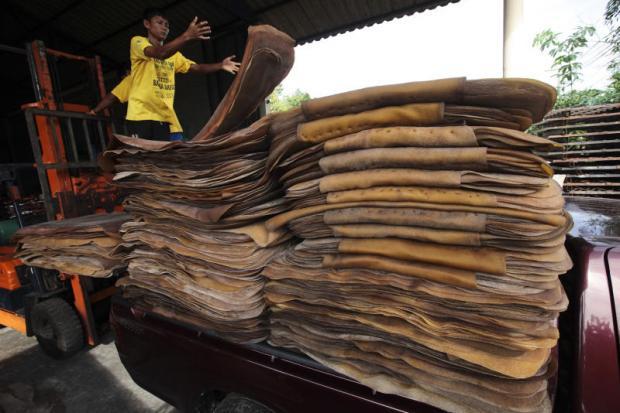Thailand: Baht upheaval carries across industries
Agriculture, electronics, and food and drink have been hit hardest by the baht’s 6% year-to-date appreciation, according to Asia Plus Securities (ASP).
Porranee Thongyen, ASP’s head of research, said the stronger than expected baht hurt exporters like Sri Trang Agro Industry Plc, which earns most of its income in US dollars and mostly baht-denominated expenses. Exporters with large dollar expenses, such as Thai Food Group Plc, benefited from the currency’s gain.
Most exporters, including those that make parts and ship agriculture food products, will lose about 5% in profit for every additional baht the dollar loses in its exchange rate, Mr Porranee said.
The baht has been one of the best performing currencies in the region. It has been appreciating since 2016, and it is currently trading at 33.96 to the dollar, the highest in almost two years.
This is especially evident when compared with Southeast Asian counterparts: Indonesia’s rupiah has appreciated 1.4%, while the Philippine peso has remained flat.
Mr Porranee said the baht’s strength has been largely due to the influx of funds into Thailand’s bond market.
Net buying in the bond market this year is 135 billion baht or US$3.97 billion, down 26% from the same period last year, and quite low compared with the 365-billion-baht balance in 2016.
Recently, Indonesia has faced net selling. As in Thailand, foreigners have been switching between net buying and selling in the Philippines.
The Chinese yuan has strengthened only slightly, from 6.864 to 6.809 to the dollar on May 31.
This move is largely the result of the Chinese government announcing it will strengthen the currency following US pressure.
If the Thai currency continues to strengthen at this rate, in ASP’s estimation it will average around 34.50 to the dollar for the year, which should not depress exporters’ 2017 earnings and fair values significantly.
Despite the strong baht, some stocks still have high upsides, ASP said, specifying GFPT, Charoen Pokphand Foods (CPF) and Vanachai Group (VNG).
Because of foreign exchange risk, ASP advises investing in local players like Major Cineplex Group, which decreased 4.3% in one week despite strong second-quarter projections.
Profits in this year’s second quarter are projected to grow significantly from the first quarter, thanks largely to a series of summer blockbusters.
Major Cineplex’s advertising revenue should also spike in this quarter. According to Nielsen, advertising expenditure grew 11% year-on-year in May.
Moreover, prices have already undergone correction, and have a 14% upside from the fair value of 38 million baht. Buy MAJOR and wait for the high season, Mr Porranee advised.
Mongkol Puangpatra, head analyst at KTB Securities, anticipates the baht will continue appreciating in the next few months as the US currency is likely to remain weak because of President Trump’s economic measures.
“We expect the baht to fall by the fourth quarter,” he said, adding the baht in the next two months is expected to trade in a range of 33.80-34.50 to the dollar.
In the first quarter of 2017, PTT Group gained from foreign exchange of 8 billion baht as the company hedged on currency risks and spread margin increased.
Source: http://www.bangkokpost.com/business/finance/1264511/baht-upheaval-carries-across-industries


 English
English




